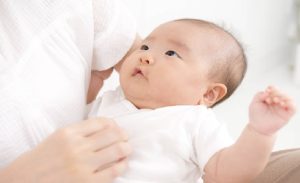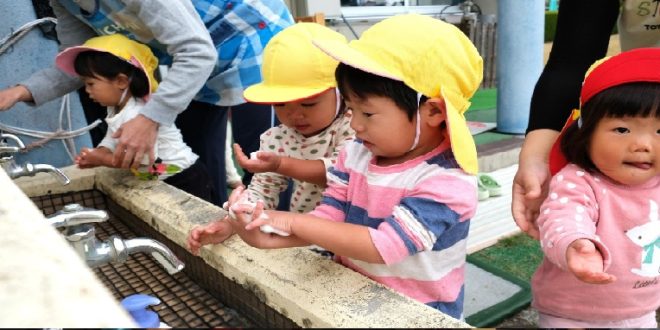28-02-2025
TOKYO: The number of babies born in Japan fell to a record low of 720,988 in 2024 for a ninth consecutive year of decline, the health ministry said on Thursday, underscoring the rapid ageing and dwindling of the population.
Births were down 5% on the year, despite a range of steps unveiled in 2023 by former Prime Minister Fumio Kishida to boost childbearing, while a record number of 1.62 million deaths meant that more than two people died for every new baby born.
 Although the fertility rate in neighboring South Korea rose in 2024 for the first time in nine years, thanks to measures to spur young people to marry and have children, the trend in Japan has yet to show an upturn.
Although the fertility rate in neighboring South Korea rose in 2024 for the first time in nine years, thanks to measures to spur young people to marry and have children, the trend in Japan has yet to show an upturn.
Behind Japan’s childbirth decline are fewer marriages in recent years, stemming from the COVID-19 pandemic, said Takumi Fujinami, an economist at the Japan Research Institute.
Although the number of marriages edged up 2.2% to 499,999 in 2024, that came only after steep declines, such as a plunge of 12.7% in 2020.
“The impact could linger on in 2025 as well,” Fujinami said.
Unlike some Western countries, only a few of every 100 babies in Japan are born out of wedlock, suggesting a stronger correlation between marriages and births.
Asked about the latest demographic data, Prime Minister Shigeru Ishiba noted the rise in the number of marriages.
“We need to be aware the trend of falling births has not been arrested. But the number of marriages posted an increase. Given close ties between the number of marriages and the number of births, we should focus on this aspect as well,” he said.
News this week that South Korea’s fertility rate rose to 0.75 in 2024 from 0.72 in 2023 suggested the demographic crisis there might have turned a corner.
 In Japan, the most recent data shows the corresponding figure for the average number of babies a woman is expected to have during her reproductive life came in at 1.20 in 2023.
In Japan, the most recent data shows the corresponding figure for the average number of babies a woman is expected to have during her reproductive life came in at 1.20 in 2023.
While Fujinami said it was too early for any meaningful comparison between the figures in the two countries, it was important for both to improve job opportunities and close the gender gap to encourage young people to marry and have children.
Experts believe South Korea’s positive turn resulted from government support in work-family balance, childcare and housing, as well as a campaign for businesses to nudge employees towards parenthood.
Japan’s total population declined for the 15th straight year in 2023, dropping by more than a half-million people as the population ages and births remain low.
Births in Japan hit a record low of 730,000 last year. The 1.58 million deaths last year were also a record high. Japan’s population was 124.9 million as of Jan. 1.
The data released Wednesday by Japan’s Internal Affairs Ministry also showed that the 11% increase in foreign residents helped their population surpass 3 million for the first time. They now make up nearly 3% of the total population and are mostly of working age from 15 to 64.
Surveys show that younger Japanese are increasingly reluctant to marry or have children, discouraged by bleak job prospects, the high cost of living which rises at a faster pace than salaries and a gender-biased corporate culture that adds a burden only on women and working mothers.
The government earmarked 5.3 trillion yen ($34 billion) as part of the 2024 budget to fund incentives for young couples to have more children, such as increasing subsidies for childcare and education, and is expected to spend 3.6 trillion yen ($23 billion) in tax money annually over the next three years. (Int’l News Desk)
 Pressmediaofindia
Pressmediaofindia




